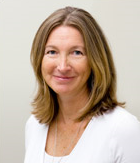- Calls to this hotline are currently being directed to Within Health, Fay or Eating Disorder Solutions
- Representatives are standing by 24/7 to help answer your questions
- All calls are confidential and HIPAA compliant
- There is no obligation or cost to call
- Eating Disorder Hope does not receive any commissions or fees dependent upon which provider you select
- Additional treatment providers are located on our directory or samhsa.gov
Why I Love Working With Patients With Eating Disorders

While many providers say they don’t prefer to work with patients with eating disorders, I feel challenged and rewarded every day. Others note that treatment is complicated, symptoms are enduring, recovery involves a lot of resources, the need for family support is time consuming, there are interfering medical risks and complications, enduring illness and relapse is common, medications are not very effective, and there is not much research for some of our only and best treatment options.
All of this is true. But for those of us who find this our calling, we understand that the mind, behavior, interpersonal matrix is complicated but this is what draws us to the work. We are interested in how body affects mind and conversely how behavior affects the body and brain. We know family education and support gives our patients the best shot for full recovery. We see that focused education helps families to prepare for transitions and hope that we together reduce the risk of serious illness by encouraging early intervention in other family members and future generations.
Understanding Eating Disorder Treatment
I love it that ED treatment is integrated and holistic. Mind body medicine is clearly relevant. Starvation is a powerful neuromodulator with short term and long term effects. Patients can’t recover without both nutritional restoration and new skills to change their thinking. With intensive treatment, they grow to develop mind-sight and improve self-regulation. Patients need encouragement to manage their diet, face their fears, and sometimes take medication. Most of the time treatment takes a village. It’s great to learn from others who bring different perspectives and expertise to our care. I know of no other illness based service that involves and utilizes team based interventions to such a degree.
Culture plays a significant part in the expression of illness. Many of us in the field believe that our patients with EDs may be the most sensitive to cultural messages surrounding weight loss and ideal body types. There is a tremendous need for physician education and school support. This work pulls you into the community. Our work helps me remember that physicians and other mental health professionals can point out unwholesome trends in culture and should taking the lead in change initiatives.
The Nature of Eating Disorders
So much is not known about the puzzling symptoms and the details about how genetic and epigenetic factors are at play. People with eating disorders tend to be kind and sensitive. They struggle with problems with self-regulation, emotion, arousal and energy. My patients are driven. Their temperaments tend towards perfectionistic and harm avoidant. They worry and in some cases are tortured by rumination. Anxiety, Depression, PTSD and Obsessive Compulsive Disorders are common. Their eating disorders cause profound suffering.
 Relationships become strained, they develop serious medical complications. Critical, unrelenting self -criticism can lead to so much suffering that they contemplate suicide. Intrusive thoughts and urges can be so distracting or disruptive that they lose relationships. Some have experienced trauma, some have been bullied, others have been in high pressured situations and retreated to high risk behaviors such as binges, purges, restriction, exercise for stress relief, in an attempt to feel better, lovable and safe.
Relationships become strained, they develop serious medical complications. Critical, unrelenting self -criticism can lead to so much suffering that they contemplate suicide. Intrusive thoughts and urges can be so distracting or disruptive that they lose relationships. Some have experienced trauma, some have been bullied, others have been in high pressured situations and retreated to high risk behaviors such as binges, purges, restriction, exercise for stress relief, in an attempt to feel better, lovable and safe.
In short, their disorders have a profound impact on their quality of life. They can become isolated even though they are loved. They can feel hopeless even that the pain and stress associated with treatment are worse than the illness. There is so much to work with and most can get significantly better, many to full recovery, even those with enduring severe symptoms! That is why
I love working in this field.
A Rewarding Calling
I imagine that, when we work, we help clear away the clouds so that a person can return to their best level of functioning. Recovery is finding that strength within. I truly enjoy helping patients develop the courage to face their fears, cultivate self-compassion, accept a natural body weight and commit to wholesome eating strategies that will support full recovery. I am enlivened by the work and feel lucky to have found my path.
 About the Author:
About the Author:
Dr. McCallum is a psychiatrist, board certified in both child, adolescent, and in adult psychiatry. She is a fellow of the American Psychiatric Association (FAPA) and a Certified Eating Disorders Specialist (CEDS) and remains an Associate Professor of Clinical Psychiatry at Washington University. She received her Bachelor of Science from Brown University, her medical degree from Yale University, completed her adult training at UCLA Neuropsychiatric Institute, and her Child and Adolescent Psychiatry Fellowship at Washington University School of Medicine.
The opinions and views of our guest contributors are shared to provide a broad perspective on eating disorders. These are not necessarily the views of Eating Disorder Hope, but an effort to offer a discussion of various issues by different concerned individuals.
We at Eating Disorder Hope understand that eating disorders result from a combination of environmental and genetic factors. If you or a loved one are suffering from an eating disorder, please know that there is hope for you, and seek immediate professional help.
Last Updated & Reviewed By: Jacquelyn Ekern, MS, LPC on September 13, 2016
Published on EatingDisorderHope.com

The EatingDisorderHope.com editorial team comprises experienced writers, editors, and medical reviewers specializing in eating disorders, treatment, and mental and behavioral health.

